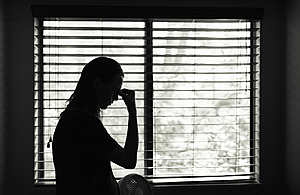Enhanced Domestic Abuse Bill introduced to Parliament
Ground-breaking Domestic Abuse Bill to receive First Reading in the House of Commons.

The government has set out an enhanced version of the landmark Domestic Abuse Bill to Parliament, which will go even further to support and protect victims and punish perpetrators.
The bill is the most comprehensive package ever to tackle this horrendous crime and has been widely welcomed by charities and stakeholders.
Following through on the pledge to bring the bill back to Parliament, it includes new measures, such as requiring tier one local authorities (county councils and unitary authorities) in England to provide support and ensure safe accommodation for victims and their children. The bill will also improve on the previous pledge to ban abusers from cross-examining their victims in the family courts, to apply to all family proceedings where there is evidence of domestic abuse.
Domestic Abuse Protection Orders and Protection Notices are powerful tools to protect victims immediately and offer flexible, longer-term protection by imposing requirements on perpetrators. This could include prohibiting contact with the victim or forcing a perpetrator into alcohol or drug treatment programmes.
The government has also announced it will fund any court costs for police applying for these Orders under the pilot, ensuring cost will not be a barrier to police implementing this important tool.
The bill’s measures are part of a wider response to tackle crime including recruiting 20,000 additional police officers and offering a record funding settlement to police forces.
Home Secretary Priti Patel said:
An astonishing 2.4 million people in England and Wales have suffered domestic abuse. That is unacceptable, and the reason why it is so important to shine a light on this crime.
The Domestic Abuse Bill is a monumental step to empower victims and survivors, provide protection and tackle perpetrators at the earliest stage.
Through this bill and bolstering law enforcement, we will be able to keep millions of victims safe.
Lord Chancellor and Secretary of State for Justice Robert Buckland said:
This bill will bolster our response to domestic abuse on every level – strengthening protections for victims, whilst ensuring perpetrators feel the full force of the law.
From giving courts greater powers through new prevention orders, to barring abusers from cross-examining their victim in the family courts, we are delivering a justice system more resilient than ever to the tackle this horrific crime.
Minister for Safeguarding Victoria Atkins said:
Too many people have to live in fear of abuse – whether it be physical, emotional or economic - from those who should make them feel safe and loved.
This bill will provide support to the victims and survivors of this horrendous crime so that they can go some way to feeling safe again.
Sandra Horley CBE, Chief Executive of national domestic abuse charity Refuge said:
Refuge welcomes the re-introduction of the Domestic Abuse Bill, which is significantly enhanced by the addition of a legal duty on local authorities to provide refuge accommodation.
This bill offers the government a real opportunity to transform the response to domestic abuse in this country, but key to its success will be meeting this duty with adequate funding, so that no woman or child is ever turned away when seeking safety.
Refuge will continue to work with the government to strengthen the bill as it progresses into law, and to ensure it best protects the survivors whose very lives depend on it.
Adina Claire, Acting co chief executive of Women’s Aid Federation of England, said:
With the number of women killed at a 14 year high, the return of the Domestic Abuse Bill to parliament is welcome. Crucially, the legal duty on local authorities could be life-saving, and we will continue to call on the government to deliver a secure funding future for specialist women’s services to support this new legal duty.
We are pleased the government has listened to our calls for a wider ban on cross-examination to protect all survivors who face this traumatising practice, but there remains a long way to go before the family courts are truly safe.
We will now work with government and parliament to strengthen the bill to meet the needs of every woman and child experiencing domestic abuse, including migrant women who continue to face dangerous barriers to protection and support.
The bill has been designed to be future-proof from any new ways perpetrators try to control their victims. It will encompass worrying new trends such as ‘tech abuse’ – where abusers use personal and home devices and smart gadgets to control their victim. Recent figures from the charity Refuge, whose domestic abuse helpline is funded by the Home Office, show that almost three quarters (72%) of people who spoke to them had been abused through technology.
Economic abuse, which limits access to a victim’s fundamental economic resources such as money, food, transport, clothing, utilities, employment and housing, will also be specifically referenced in the definition of domestic abuse to raise awareness of this type of abuse.
Further to these measures, the government has begun a review into what support can be provided to migrant victims of domestic abuse, in addition to looking at what more can done to stop the so called ‘rough sex’ defence being used by perpetrators in court to attempt to escape justice.
Since the bill was first announced, the government has appointed Nicole Jacobs to be the designate Domestic Abuse Commissioner, who has already begun her important work championing victims and survivors, while constantly monitoring UK legislation to make sure the UK remains a world leader in tackling domestic abuse. This includes looking at what support the government can provide children who have been affected by domestic abuse.